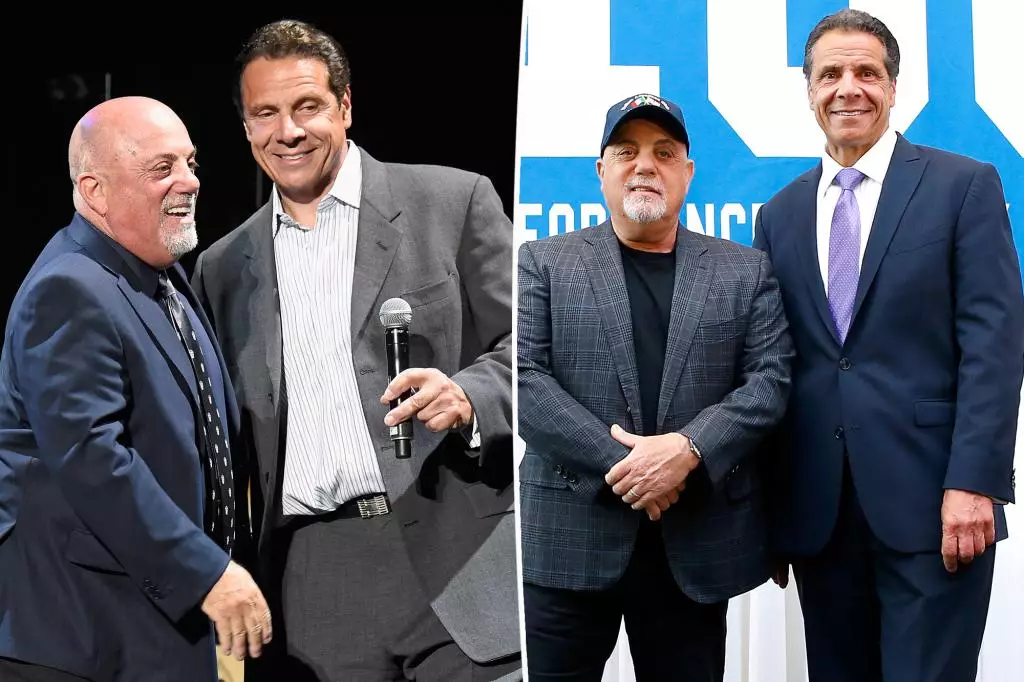Billy Joel, the legendary rock musician recognized for his timeless hits, has recently stepped into the political arena with a generous donation of $50,000 to a super PAC supporting Andrew Cuomo’s mayorial run. While some may view this contribution as merely a financial transaction in the glitzy world of political funding, it speaks volumes about Joel’s long-standing allegiance to Cuomo and his vision for New York City. Notably, the Piano Man made this donation via his William M Joel Revocable Trust—a move that not only extends his influence but also reinforces the increasingly close intertwining of culture and politics in America.
Revisiting the Ties that Bind
The connection between Joel and Cuomo isn’t new; their relationship has weathered the storm of political ups and downs over the years. In 2018, Joel hosted a lavish campaign dinner for Cuomo at his picturesque estate, and back in 2013, he graced the stage at a fundraiser celebrating Cuomo’s birthday. What makes their bond particularly compelling is that Cuomo is also the godfather of one of Joel’s daughters. This personal connection adds a layer of depth to what might seem like a simple currency exchange. It illuminates a world where personal and political realms converge, suggesting that loyalty transcends mere donations.
The Super PAC Landscape
With the PAC system enabling unlimited contributions, Joel’s financial support for Cuomo places him in a larger narrative involving the wealthy elite shaping the political landscape. The Fix the City PAC has amassed considerable financial backing, boasting significant contributions from high-profile supporters such as media mogul Barry Diller and hedge funder Daniel Loeb, each chipping in $250,000. This dynamic paints a picture of a densely packed power structure, where influence is measured in dollars. For many, this raises ethical questions about the nature of representation—do dollar signs equate to political clout?
Contrasting Political Currents
Interestingly, while Cuomo’s super PAC is flush with cash, emerging political figures like Zohran Mamdani are garnering interest from less traditional supporters. As a leftist candidate hailing from Queens, Mamdani represents a grassroots movement that seeks to disrupt the status quo. The existence of another PAC in support of Mamdani indicates a shifting landscape where traditional power brokers face challenges from newer voices eager to resonate with the electorate. The contrast between these two fundraising approaches encapsulates the ongoing battle for the soul of New York politics.
Cultural Impact and Responsibility
Beyond mere finances, Joel’s involvement in supporting Cuomo raises a broader question: What responsibility do cultural icons have in political matters? As a figure admired across generations, Joel wields significant influence. His actions could sway public perception and mobilize other supporters. The stakes are incredibly high in a city as complex and diverse as New York, suggesting that famed musicians and artists might need to consider the impact of their political affections more closely.
In a time when public trust in political institutions hangs by a thread, the interplay between celebrity, money, and politics provides fertile ground for scrutiny. Joel’s monetary support for Cuomo isn’t just a headline; it’s a vocal testament to where loyalty lies, reminding us that in the realm of politics, the influence of the arts is both profound and enduring.
